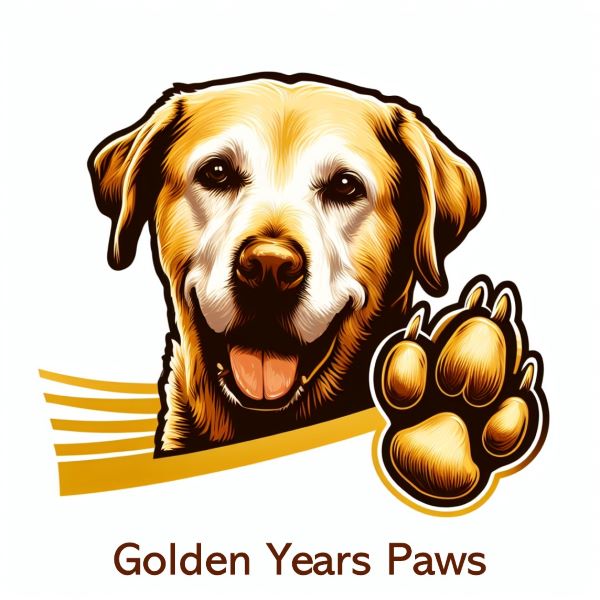I’m going to talk about a phenomenon that might seem worrying for many pet owners: the onset of aggression in their senior dogs. It’s not a simple case of ‘old dog, new tricks‘ — it’s a complex shift that can be distressing both for the canine and for you as the owner.
There are a couple of misconceptions floating around out there. One, that aggression is a sign of dominance, or two, that it’s a trait only found in certain breeds or poorly trained dogs. In reality, aggression can surface in any dog, and often it’s a product of underlying issues that aren’t immediately visible to us.
This brings me to the heart of the matter: signs of aggression. It could be anything from a low growl when you approach their food bowl to a rigid body and a lifted lip. For my own Labrador, Rio, who at 12 years old has never so much as barked at a squirrel, these behavioral changes were more than surprising. Previously the epitome of neutrality towards strangers, he’s recently started to bristle and growl when approached, something he would never have done in his younger days.
You’re going to find out that this type of aggression isn’t something we see overnight. It often builds up, and there may be a variety of triggers. By understanding these changes, we can start to peel back the layers on what might be driving your senior dog’s new demeanor. Let’s explore what could be lying beneath this aggressive behavior and how it might be linked to their health and well-being.

The Underlying Causes of Aggression in Senior Dogs
You’re going to find out about the various reasons why senior dogs like Rio might start showing signs of aggression. It’s not just about a change in attitude; it’s often a signal of underlying issues.
Health-related causes are a significant contributor to changes in behavior. Pain from arthritis, dental disease, or internal discomfort can make a once easygoing dog like Rio act out. It’s their way of saying, ‘I’m not feeling well*’.
Sometimes, psychological factors come into play. Anxiety and fear, possibly stemming from a reduction in their senses like hearing or vision, can cause your old friend to feel vulnerable. In my opinion, intervening early when these signs emerge is crucial.
Cognitive decline, also known as canine cognitive dysfunction, can affect a dog’s temperament. It’s akin to dementia in humans, and it can lead to confusion and agitation.
Lastly, you can’t overlook the impact of their surroundings. A new pet, a move, or even a change in the household routine can stress a senior dog like Rio, prompting growling or other defensive behaviors. It isn’t always about what’s happening inside them; sometimes, it’s the world around them that can be intimidating.
Practical Strategies for Managing Aggression in Older Dogs
If you’re noticing signs of aggression in your senior dog like Rio, who’s started growling where he used to be neutral, don’t worry too much about it just yet. There are several steps you can take to address this behavior, even if it’s a new development for your once easygoing Labrador.
First up, get your furry friend checked out by a veterinarian. You’re going to find out whether there’s a medical reason behind the aggression, such as arthritis or dental pain, which is common in older dogs. Your vet might also suggest medication or therapies that can ease any discomfort your dog is experiencing.
In my opinion, after the vet visit, behavioral modification should be your next step. This isn’t just about commands and obedience; it’s also about understanding your senior pet’s current capabilities. Keep training sessions short to match their shorter attention span, and choose something that resonates with your dog to make the process enjoyable.
Adjusting your home environment can also do wonders. Ensure that your dog has a quiet place to retreat to, away from the hustle and bustle of daily life. With your dog becoming more sensitive with age, it’s crucial that they have a sanctuary.
Regarding diet and exercise, your old buddy still needs to stay active, but you can always adjust your approach down the road. Choose lower-impact activities that don’t strain their joints, and consult with your vet about a diet that supports joint health and cognitive function.
I really hope that you’ll find these strategies helpful. Remember, your first attempt doesn’t need to be your last, and always observe your dog’s response to these changes. What works now may need tweaking as they continue to age.

Supporting Your Senior Dog Through Change
I’m here to help you navigate the newfound aggression in your senior dog, like my 12-year-old Labrador, Rio, who recently began displaying signs of aggression himself. It’s not just about managing these behaviors; it’s also about understanding and supporting your furry companion through these twilight years.
Just don’t focus too much on perfection. Dogs age, and with it, their temperaments can shift. It’s more about creating a balance and providing stable, compassionate care. Prioritize patience and empathy; Remember, your senior dog may not have the same tolerance levels as before, and that’s okay.
Keep the connection alive by gently continuing to socialize your dog, but also respect their new boundaries. It’s about reading their cues and knowing when to give them space. After all, they have given us unconditional love for so many years—it’s our turn to give that back.
Prepare your household to be mindful and accommodate these changes. A calm environment, clear routines, and a little extra TLC can make a big difference. If you see behaviors you’re not equipped to handle, don’t hesitate to consult professionals. Working with animal behaviorists or trainers can provide tailored strategies to ensure your pet’s well-being.
I really hope that these tips help you foster a loving and peaceful environment for your aging dog. With care and attention, your senior companion can continue to enjoy a good quality of life, even as they navigate through this stage of life. Embrace this time with your loyal friend, as each day with them is a precious gift.
If you’re looking for more in-depth information on managing aggression and understanding its causes, Spirit Dog Training is an excellent resource that I highly recommend.
Warmest Wags,
Morena
Founder, GoldenYearsPaws.com

